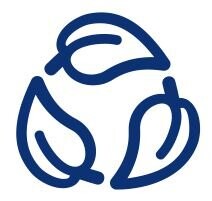Oct 7, 2020 - 5 min
Methionine: A key to improve use of agricultural resources

A vital amino acid in the assimilation of nutrients by animals, methionine is a powerful efficiency driver for free-range and intensive farming, where it is used as a food supplement. At Kerteh, Malaysia, Arkema’s partner CheilJedang is producing methionine with a world-first industrial process that uses a sulfur derivative supplied by Arkema (methyl-mercaptan) and bio-based raw materials. This energy efficient process synthesizes only the most “useful” form – L-methionine.
Just 0.1 to 0.2% of methionine in a chicken’s feed is enough to significantly impact its metabolism and growth curve. To reach a given muscle weight will take only half the amount of feed and far less time And yet, methionine is neither a doping agent nor a wonderdrug: “It is an amino acid that is essential to the synthesis of proteins in both animals and humans, and which is naturally found in limited quantities in various cereals and pulses,” says Georges Frémy, a thiochemicals expert at Arkema. “But for the animal to assimilate the amount needed to reach a good metabolism, it would have to be overfed, which is pointless, and that’s why we need properly dosed supplementation,” he goes on. Methionine supplements have been used in feed for poultry and other livestock for almost 80 years, and are essentially a means for farmers to optimize the resources required for the development of their animals, while promoting the best-quality meat (muscle rather than fat). This efficiency driver is more vital than ever, with the global population standing at 7.7 billion and potentially reaching 9.8 billion by 2050. “Demand for meat is growing fast, especially in Asia, and that’s putting a lot of pressure on the use of agricultural land,” continues Georges Frémy. “Methionine helps to secure this source of protein at the minimum level required, and that frees up more crops for human consumption.”
The L-methionine produced by CJ is based on an intermediate product made from 100% bio-based raw materials such as sugars and glycerol produced from vegetable oils.

A challenge for R&D: Producing methionine better
Methionine is widely used today, especially in the farming of poultry, pigs and prawns. But such success naturally comes at a cost: “The traditional industrial processes for chemical synthesis have a high demand for energy and are based on oil resources,” points out Georges Frémy. Moreover, they can only produce DL methionine, which contains equal quantities of the L-form and D-form of the amino acid. “But only L-methionine, the natural form, is useful to animals, because only L-form can be used for protein synthesis” explains the expert. “Their organisms can metabolize the D-form into L, but research shows that the transformation reduces the effectiveness of the supplement compared to natural L-methionine.”
Against this backdrop, Arkema and its South Korean partner CheilJedang (CJ) spent several years working on a breakthrough technology. Since 2015, at its site in Kerteh, Malaysia, CJ has been producing L-methionine directly using an unrivaled process.
A bio-based, energy efficient process
Like other such sites, Kerteh has a unit producing methyl-mercaptan, a sulfur compound needed for all methionine syntheses, of which Arkema is the world’s leading producer. “One of the innovations is in the fermentation process, developed by CJ, which allows an intermediary product to be synthesized from 100% bio-based raw materials such as sugars or glycerin from plant oils,” explains Georges Frémy. The final stage consists in a reaction between the mercaptan and the bio-based intermediary and is a bio-catalysis at room temperature in an aqueous medium. The entire process is therefore simpler (with fewer stages) and far less energy intensive than the traditional chemical processes, which rely on reactions at temperatures that are up to forty times higher. The result is bio-based methionine, with a low energy requirement, that is directly produced as L-methionine, which is perfectly adapted to animals.
Arkema is, through this model partnership, making a major contribution to the improved efficiency of methionine.
Double capacity
The Kerteh site went into service in 2015, and was expanded in 2019. The two partners made a considerable new investment in order to increase their production capacity. The product commercialized by CJ is competitive, high-quality and resource efficient – a perfect response to market expectations, whether from farmers or distributors. Just as with the other producers of methionine which Arkema supplies with methyl-mercaptan, the Group is, through this model partnership, making a major contribution to the improved efficiency of methionine, which constitutes a precious asset in the face of the major food challenges that await in the decades to come.
See also
Back to all articles- Expertise articles
- Expertise articles
- Case Study
